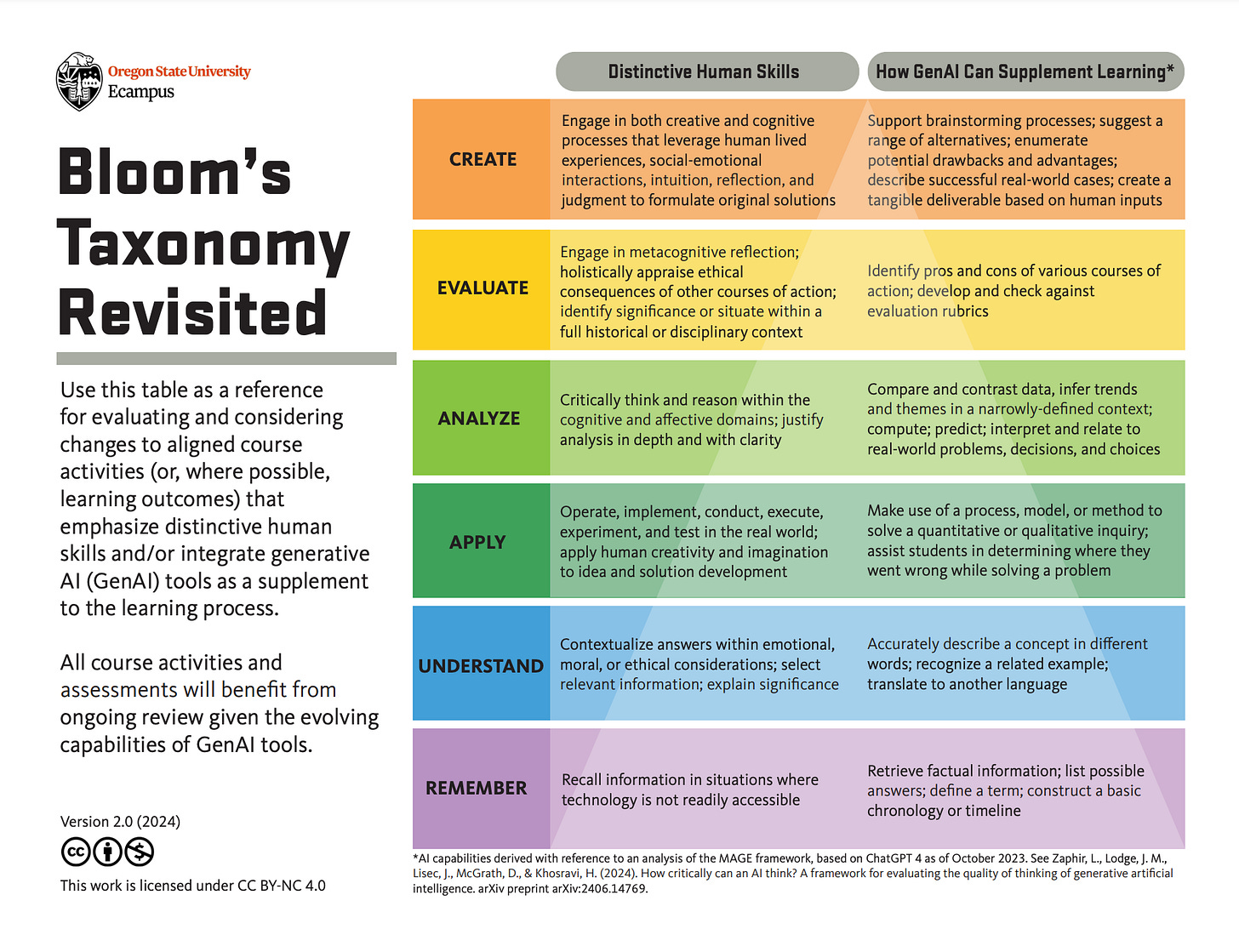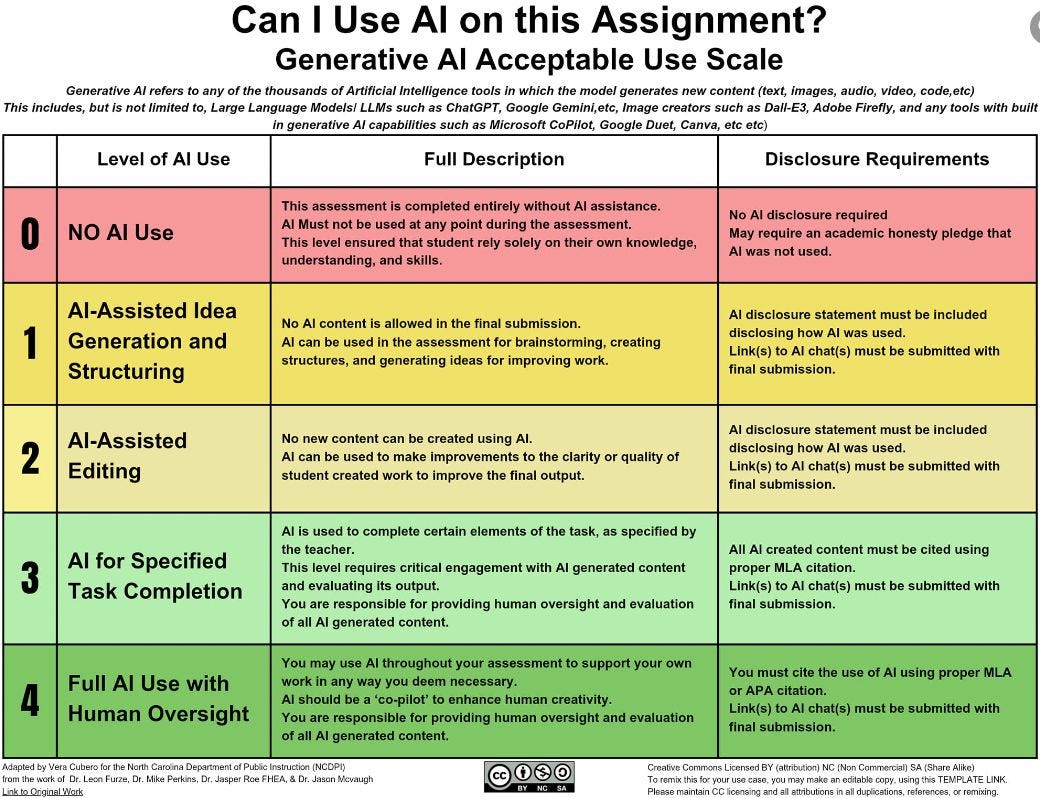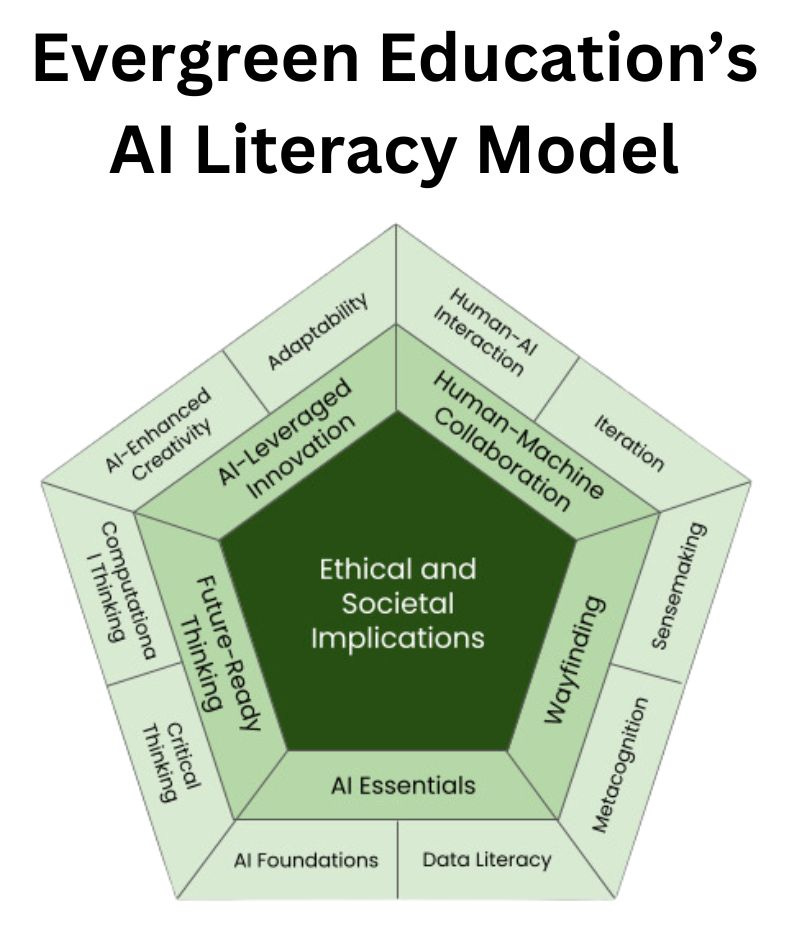🤯 State of AI in Education
Discover how cutting-edge AI advancements, like OpenAI's o1 model and Google's NotebookLM, are revolutionizing learning and enhancing student engagement
As the new school year begins, we’re also seeing groundbreaking advancements in AI models recently! OpenAI released their OpenAI o1 model, the first in a series of models designed to spend more time thinking before responding. The o1 model features enhanced reasoning capabilities, making it useful for complex tasks in fields like science, coding, and math. This model may be particularly helpful in higher education, where students engage with more intricate material. This video features Tyler Cowen, professor at George Mason University, interacting with OpenAI o1 in the context of Ph.D.-level economics to test its performance.
Meanwhile, Google has introduced the Audio Overview feature in NotebookLM, allowing students to transform their documents and research papers into engaging podcasts. This enables students to study on-the-go and may help them retain new information in a more engaging and digestible format. These developments open up new possibilities for engaging with learning and interacting with material in ways that weren’t possible before. In this edition, we will discuss how you can stay ahead of the curve on AI this school year.
Here is an overview of today’s newsletter:
OpenAI Announces Its First-Ever Education Forum
AI Literacy Models and Frameworks for Classroom Implementation
Assessing the Current State of AI in Education
Examining the Outcomes and Experiences of Personalized Podcast Generation
🚀 Practical AI Usage and Policies
🎙️ Join the Conversation
Inaugural OpenAI Education Forum
OpenAI is hosting its first-ever OpenAI Education Forum this October in New York City. If you're interested in attending, be sure to apply here. The event will feature discussions with OpenAI leadership and prominent university figures such as Ethan Mollick, Jaci Jenkins Lindburg, and Mitchell Weiss, along with OpenAI’s Education Team, to explore how AI can enhance teaching and accelerate academic research
The International Society for Technology in Education (ISTE) recently launched GenerationAI, an educational movement aimed at empowering K-12 educators with the knowledge, tools, and confidence to harness the power of Artificial Intelligence (AI) safely and responsibly in the classroom. Join the movement to stay informed about the latest events, frameworks, and professional learning opportunities.
🧭 Navigate AI in the Classroom
Oregon State University developed this resource to assist higher education faculty in assessing the types or "levels" of learning planned based on course-level outcomes, particularly as students navigate learning in the age of Generative AI. This resource serves as a guide for faculty and instructional designers to reflect on activities, assessments, and potentially course outcomes.
An Acceptable Use of AI Framework
Vera Cubero created this framework to establish a common understanding between students and teachers regarding AI use in assignments. It addresses both the disclosure requirements and extent of AI usage. It was adapted from the paper, "The AI Assessment Scale (AIAS): A Framework for Ethical Integration of Generative AI in Educational Assessment", by Dr. Mike Perkins, based on Dr. Leon Furze's work.
Minecraft Education has a series of animated videos and interactive scenarios set in immersive Minecraft worlds to help students have fun while developing AI literacy. The series is accompanied by a comprehensive curriculum guide, designed to assist educators and parents in guiding students through these AI learning experiences.
Evergreen Education’s AI Literacy Model
Evergreen recently released their AI Literacy Model, featuring AI Competencies for K-12 that outline essential AI skills for the future. The model focuses on key 'domains' that students need to understand for thriving in an AI-powered world, such as Future-Ready Thinking and Human-Machine Collaboration. It also includes level-appropriate, curriculum-aligned starter ideas for schools looking to safely and pragmatically integrate AI.
🧠 Catch Up on the Latest Reads
A bottle of water per email: the hidden environmental costs of using AI chatbots
Did you know that generating a single 100-word email using GPT-4 requires 519 milliliters of water, a little more than a bottle? This article by the Washington Post dives into the surprising amount of water and electricity required to cool down data centers to power AI chatbots, as well as the significant amount of water it takes to train these advanced AI models.
The Gates Foundation published an article featuring insights from expert Asyia Kazmi, their Senior Program Officer, on the future of education. The piece explores potential changes in learning methods and offers implementation strategies to ensure an equitable education for all students.
Smart Talks with IBM Podcast: Education in the Age of AI
In this IBM podcast episode, Dr. Laurie Santos, host of Pushkin’s The Happiness Lab podcast, speaks with Vice President and Chief Impact Officer Justina Nixon-Saintil and Associate Dean of Technology and Innovation April Dawson. The podcast covers the importance of lifelong learning, upskilling, and the ethical implications of AI in education.
📣 Student Voices and Use Cases
What is the current state of AI in education? In this section, we highlight several key white papers and reports that explore the latest statistics and emerging trends in AI's impact on education globally.
Clever Annual Report 2024: Classroom of the Future
This report by Clever provides valuable insights into how educators are navigating the challenges of this emerging technology. It features a wide range of insightful statistics, some of which are highlighted below.
Value of Relationships: Approximately one-third of educators (31%) are opposed to the automation of communication with students and parents, highlighting the significance of personal connections within community relationships.
Reduced Concerns: The proportion of teachers who think AI will complicate their roles has decreased from 48% to 18% since 2023.
Tailored Learning: 52% of teachers believe that technology offers a more personalized learning experience compared to conventional methods.
High User Confidence: Only 23% of educators report feeling highly confident in their ability to utilize AI tools safely and responsibly.
Confidence Disparity: While 30% of teachers indicate moderate confidence in using AI tools safely and responsibly, a notable 45% admit to feeling only slightly confident or not confident at all.
Common Sense Media, one of the leading nonprofit organizations in the US, spoke with students from various parts of the country and found several common themes that emerged from these conversations shown below. Read the full report to learn more about each of the following key points:
For most kids, ChatGPT equals AI
AI policies vary among districts, schools, and teachers
Students don’t want bans, but they do want clear guidelines
Plagiarism and cheating remain top concerns in schools
Students are grappling with ethical concerns and need more space to learn about AI’s risks and harms
Social media and chat apps are go-to sources for kids on AI
Age matters
AI is raising existential questions about the definition and purpose of education
Microsoft AI in Education Report
Microsoft recently published a blog article presenting key insights from their AI in Education Report, alongside their survey results. The article also highlights how generative AI is making a significant impact in classrooms around the world. Check out these statistics below:
📝 Latest Research in AI + Education
Google, Drexel University
This research explores the potential of using large language models (LLMs) to create personalized AI-generated educational podcasts from textbook chapters. A user study with 180 college students compared traditional textbook reading with generalized and personalized AI-generated podcasts. The findings revealed that students generally found the podcast format more engaging than reading textbooks, and personalized podcasts improved learning outcomes, particularly in subjects aligned with students' interests. The study suggests that AI-driven podcasts could be a more enjoyable and effective learning tool, especially with tailored content.
Opinion: Introducing LLM-generated podcasts as a supplement to traditional college lectures offers a unique opportunity to make learning more flexible and personalized for students. As this study demonstrates, AI-generated podcasts can effectively transform textbook material into a format that resonates more with students' preferences, making learning more engaging. Students are already shifting away from traditional reading methods, and AI-driven podcasts offer an accessible alternative. By allowing students to learn in a format that suits their lifestyle, these podcasts can help reduce study fatigue and improve overall engagement with course material.
Do, T. D., Bin Shafqat, U., Ling, E., & Sarda, N. (2024). PAIGE: Examining learning outcomes and experiences with personalized AI-generated educational podcasts. arXiv. https://arxiv.org/abs/2409.04645Harvard University
AI Tutoring Outperforms Active Learning ↗️
This research compares the effectiveness of AI tutors with active learning classrooms, showing that AI tutoring significantly enhances learning outcomes. In a randomized controlled study with undergraduate physics students, those using an AI tutor learned more than twice as much in less time compared to those in active learning environments. The AI tutor was designed using pedagogical best practices, offering personalized feedback and self-paced learning. While the AI tutor was highly effective, the study highlights the importance of careful design and warns against over-reliance on AI for learning.
Opinion: AI tutors have demonstrated significant potential in improving students' learning outcomes, especially in STEM fields, where individualized instruction and regular feedback are vital to mastering concepts. In STEM disciplines, students often encounter diverse challenges and varying levels of prior knowledge, making personalized education essential. AI tutors can provide immediate feedback tailored to each student’s needs, helping them progress at their own pace without being confined by the uniform speed of traditional classroom instruction. This individualized approach fosters deeper conceptual understanding and ensures that students can focus on areas that need improvement, as highlighted by this study's finding that students using AI tutors learned more in less time. Moreover, AI tutors allow STEM students to experiment, solve problems, and engage in critical thinking in a self-directed manner, enhancing their grasp of challenging subjects.
Kestin, G., Miller, K., Klales, A., Milbourne, T., & Ponti, G. (2024). Ai tutoring outperforms active learning.. https://doi.org/10.21203/rs.3.rs-4243877/v1📰 In the News
Education Week
Google Spends $25M on AI Training for Teachers ↗️
Key takeaways:
Google.org is investing over $25 million to help five education nonprofits train educators and students on the responsible use of artificial intelligence (AI).
The initiative will reach over 500,000 K-12 and college students and educators, focusing on providing culturally relevant AI curricula and ensuring diverse demographic groups have access to AI literacy.
A survey showed that most teachers, especially in urban and underserved districts, have not received adequate professional development on using AI in classrooms.
ISTE+ASCD will receive $10 million from the funds to train 200,000 educators through online courses, webinars, and research, emphasizing AI's ethical challenges, including bias.
Other grant recipients include nonprofits like 4-H, aiEDU, STEM From Dance, and CodePath, each focusing on AI literacy for underrepresented groups, rural communities, and integrating AI into creative fields like dance.
Sky News
School introduces UK's first 'teacherless' classroom using artificial intelligence↗️
Key takeaways:
London’s David Game College launched the UK’s first AI-taught class as part of its Sabrewing program, where AI platforms and virtual reality headsets guide students' learning without human teachers.
The AI system personalizes lessons by assessing each student's strengths and weaknesses, adapting the curriculum to focus more on areas where the student needs improvement.
While AI leads the class, three "learning coaches" are present to monitor behavior and supplement the AI, especially in subjects like art and sex education where AI is less effective.
The use of AI in education, as seen in this program and Arizona State University's collaboration with ChatGPT, raises questions about the potential impact on students' social and emotional development without human role models.
“Chatgpt.” ChatGPT, OpenAI (GPT-4), openai.com/chatgpt. Accessed 23 Sept. 2024. And that’s a wrap for this week’s newsletter! If you enjoyed our newsletter and found it helpful, please consider sharing this free resource with your colleagues, educators, administrators, and more.








